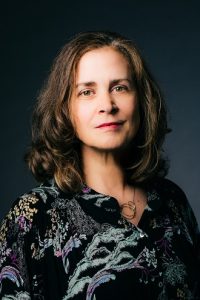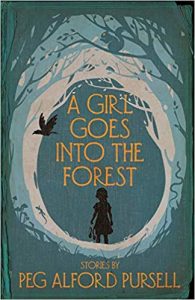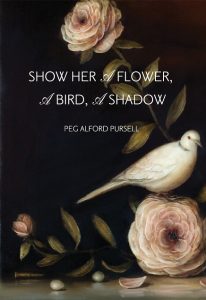Writing Needs Solitude AND Community, or How I Manage to Keep On Keeping On
 Because I am the director of a small press and of a national reading series, as well as an author, I’m often asked how I manage it all. When it comes to WTAW Press and Why There Are Words, I wear every hat conceivable in the organization I founded. I publish, edit, and market and promote books, curate and publicize monthly reading events, and strategize and oversee WTAW’s health and growth.
Because I am the director of a small press and of a national reading series, as well as an author, I’m often asked how I manage it all. When it comes to WTAW Press and Why There Are Words, I wear every hat conceivable in the organization I founded. I publish, edit, and market and promote books, curate and publicize monthly reading events, and strategize and oversee WTAW’s health and growth.
All the while I am working as an author myself, supporting my book, preparing to promote the next, and generating and revising stories in process. I have published one award-winning book, have another book coming out in summer of 2019, and have had dozens of stories, poems, and essays appear in journals and anthologies. How do I do it? The answer is simple, but it took me time to understand: I’m an artist whose work depends on my advocacy in the artist community.
Years ago, when I was a single mother of two teaching in a public school, I wrote in my spare time, of which I had little, and one of my stories had even won a nice prize, The South Carolina Fiction Project Award. I heard a new writing group was starting, what would blossom into the South Carolina Writers Workshop, and without questioning the impulse, I joined.
This was the beginning of important conversations with other writers. Writers in the group spoke of the Warren Wilson MFA Program, the first low residency program in the country. The program had begun at Goddard College, but had relocated in North Carolina at a drivable distance from where I lived with my children. A low residency program was the only way I could have earned my degree. When the other writers supported my urge to apply, I did, and was lucky enough to be accepted.
One of the benefits of such a program is meeting others who are struggling with some of the same writing issues we all grapple with in isolation. Craft books are helpful, and I enjoy reading them, but there is nothing quite like talking over issues with mentors who commiserate and help you grasp that there will always be writing problems to solve— reassuringly and depressingly and reassuringly.
Another benefit is connecting with others who will form a virtual, long-distance community after graduation, writers with whom you can exchange drafts for feedback, discuss the ups and downs of getting work published, and share knowledge about opportunities. While I was in the program, one such connection was the man who I would later marry. We read one another’s work with the kind of deep understanding, intuition, and appreciation that we soon easily privileged over others’ readings, and fell in love through our written exchanges.
This relationship came to take a central role, in a good way, but the other side of the coin was that it took time, time I would have otherwise spent cultivating that larger community. Though my husband was my best and first reader, after a time he became my only reader, and I, his. This narrowing wasn’t something we concerned ourselves with, or even recognized was happening. Our attention soon turned to the large and small changes involved in the unexpected merging of our lives.
Nonetheless, after graduate school, we continued to send work out sporadically, and I received a handful more prizes and publications. A collection of my short stories was short-listed for the Flannery O’Connor award, a prize I coveted, as it could mean publication of my first book of stories. While I didn’t win, the editor urged me to try again, explaining that many of the winners over the years had entered their manuscripts several times, and when I shared this news with my husband, I thought I noticed a subtle shift in his response. His usual enthusiastic congratulations and support seemed tepid, thin. I didn’t send that manuscript back in the following year—or ever.
In fact, I stopped sending work out altogether. I wrote less and less, and I came to realize that my husband didn’t seem to be writing at all. Soon, he decided to enroll in an MBA program. I stopped writing. Our lives together that had been constructed around our creative work were unrecognizable.
I didn’t believe that I deserved awards and publication when my husband hadn’t yet seen much success with his writing. Had I been part of that larger community of writers, I might have discovered that truth much sooner than I did, when years later therapy revealed it. I didn’t want to believe that I’d chosen to place my husband’s success before mine—I was a feminist, I thought—but once I could accept that I had been limiting myself for the wrong reasons, and forgive myself, I began to find my way.
This took time. It took a conscious effort in finding community to help me return to my writing self. This effort coincided with a series of quick moves around the country, after my husband earned that MBA. In each location, where I knew no one, I sought out other writers, trying not to feel like a failure, and when, inevitably, I came up short, I started writers’ groups that I based on the workshop model of graduate school. The groups provided deadlines, so I had to write. I was in charge, after all.
The groups met to discuss drafts we’d exchanged for critique, and as my husband and I found, the groups once more gave writing a place of significance in our lives. When we moved to California—our last move nine years ago and forevermore, I hope—a place where once again I knew no one, I felt exhausted at the thought of starting anew. It almost seemed like a test: how much did I really care about writing, the creative act and its completion: publishing?
Very much, the answer soon became clear. I started a writers’ group once again, took a handful of workshops and classes at a local bookstore and community college, and subsequently taught at these locations myself. I taught private workshops in my home, in which I wrote alongside the writers in our sessions.
Writing in the company of others—in community—has an undeniable power. Knowing that other writers are in the process of generating lends a mysterious intensity to the silence that is backdrop to the tapping on keyboards or flipping to clean notebook pages. Though I usually write in solitude, the power in this community practice has helped me transcend blank page angst.
However, being the teacher or writing facilitator wasn’t what I most needed. I wanted to interact with writers who were publishing regularly, publishing books I admired. I wanted to be inspired by their experiences, by their persistence in the face of their challenges and setbacks and joys and successes. In 2010, I launched a reading series in Sausalito, Why There Are Words, which has now become national, with branches around the country. I got to know not just writers local to Northern California but authors around the country, and as the series continued to grow and thrive, I received requests for reading slots from authors all over the world.
As I again began to have my work published, I came to understand that a reciprocal relationship between my service, providing community, and publishing my writing existed: that I am a writer who finds generative power from being present in the world in that particular way. That isolation is essential for writing and reading, but like diving in deep waters, the arts community is the oxygen that for me makes such depth possible.
By listening to hundreds and hundreds of authors read their words live, I also came to better hear my own internal voice, the kind of work I thrilled to, what turned me off, what I tuned out. This discernment led to the publication of my first book, Show Her A Flower, A Bird, A Shadow, a collection of flash fiction and hybrid prose. This book, awarded the 2017 INDIES Book of the Year for Literary Fiction, couldn’t have been written without community.
Some of the stories’ first drafts were written with my students in my workshops. Some appeared in journals or anthologies I was proud to have publish them. When the book came out, I read from it at WTAW in Sausalito, and in the packed room, I felt fully this truth: writing and persisting takes its power equally from solitude and from community.
Arts are life-transforming for everyone—for the artists themselves, yes, but also for those who walk away from a reading, for example, and find in a writer’s words surprising new connections and something has altered in a way that they hadn’t anticipated.
While these days I am frequently too busy to accommodate even a potluck dinner party with friends, and I often wish for more time to write, to read, to talk over my husband’s writing with him (who’s now had one-third of his story collection published), I have come to appreciate the truth of my creative process: it is my commitment to literary community that makes me productive as a writer.
—
Peg Alford Pursell is the author of SHOW HER A FLOWER, A BIRD, A SHADOW, the 2017 INDIES Book of the Year for Literary Fiction, a collection of fiction and hybrid prose selected by Poets & Writers magazine for its second annual “5 over 50” feature. Her second collection of fiction and hybrid prose, A GIRL GOES INTO THE FOREST, is published by Dzanc Books in July 2019. Her work has been published in many journals and anthologies, including Permafrost, Joyland magazine, the Los Angeles Review.
Stories have been performed at Stories on Stage in Sacramento, and Stories on Stage in Davis. She directs Why There Are Words, a national literary reading series she founded in Sausalito in 2010, and she is the director and founder of WTAW Press, an independent publisher of award-winning literary books. The Associated Program of Writers and Writing Programs (AWP) featured her on their website “In the Spotlight” (2017) for her literary citizenship and community building. You can find Peg Alford Pursell on Facebook, Twitter, and Instagram. She also sends out a personal newsletter described by one writer as “the best email I receive all month.” Visit her at www.pegalfordpursell.com to learn more.
A GIRL GOES INTO THE FOREST, Peg Alford Pursell
 Following her acclaimed debut, Show Her a Flower, A Bird, A Shadow, award-winning author Peg Alford Pursell explores and illuminates love and loss in 78 hybrid stories and fables. A Girl Goes into the Forestimmerses readers in the complex desires, contradictions, and sorrows of daughters, wives, and husbands, artists, siblings, and mothers.
Following her acclaimed debut, Show Her a Flower, A Bird, A Shadow, award-winning author Peg Alford Pursell explores and illuminates love and loss in 78 hybrid stories and fables. A Girl Goes into the Forestimmerses readers in the complex desires, contradictions, and sorrows of daughters, wives, and husbands, artists, siblings, and mothers.
In forests literal and metaphorical, the characters try, fail, and try again to see the world, to hear each other, and to speak the truth of their longings. Powerful, lyrical, and precise, Pursell’s stories call up a world at once mysterious and recognizable.
A Girl Goes into the Forest invites fans of Lydia Davis and Helen Oyeyemi into a world where “no one can deter a person from her mistakes.”
BUY THE BOOK HERE
Show Her a Flower, A Bird, A Shadow
Fiction. Hybrid Genre. 2017 INDIES Book of the Year for Literary (Adult Fiction). Finalist and Honorable Mention in Fiction for the First Horizon Award.
 In this striking debut, of vivid characters and piercing situations, nothing is too insignificant for Pursell’s imagination—a wren on a branch, a hole in a sock, ginger tea—and nothing too dangerous—a girl hit by a stone, a mother and daughter struggling, a lip plump with blood. Intense insights are captured in superb concentrations of prose, with lyricism and flashes of brilliant detail applied to the small wonders of the world. In a matter of a few words, a few lines resonant as in the way of music, we are transported.
In this striking debut, of vivid characters and piercing situations, nothing is too insignificant for Pursell’s imagination—a wren on a branch, a hole in a sock, ginger tea—and nothing too dangerous—a girl hit by a stone, a mother and daughter struggling, a lip plump with blood. Intense insights are captured in superb concentrations of prose, with lyricism and flashes of brilliant detail applied to the small wonders of the world. In a matter of a few words, a few lines resonant as in the way of music, we are transported.
This dazzling collection of narratives, with its precise beauty and unsparing wisdom, is a fiercely sacred book, immense in its gifts, with a long, shimmering after-effect. Show Her A Flower, A Bird, A Shadow has received praise from Margot Livesey, Joan Silber, Peter Orner, Glen David Gold, Antonya Nelson, Melissa Pritchard, Tom Barbash, and Molly Giles.
To call this volume “slim” would be a mistake. It is rich in the way of poetry—lyric intensity applied to the small wonders of the world—and resonant in the way of music, summoning again and again the mysterious visceral response from its reader. Many of these sentences (“I wished it would rain, to quench something,” for instance) are running repeatedly through my mind, like noteworthy and unforgettable songs. –Antonya Nelson, author of Funny Once and Bound
Reading this book is like walking through a snowfall of petals—and thorns. There is a light airy feeling to Peg Alford Pursell’s delicately worded fragments that is seductive, at first, until you realize that each swirl contains small stabs of loss and pain and violence. A really beautiful, unique collection. –Molly Giles, author of In All the Wrong Places and Iron Shoes
Buy the book here.
Category: How To and Tips





























Wow!! Thank you for this candid, forgiving, and glorious piece. I found myself here & will be checking out your work. Well done!